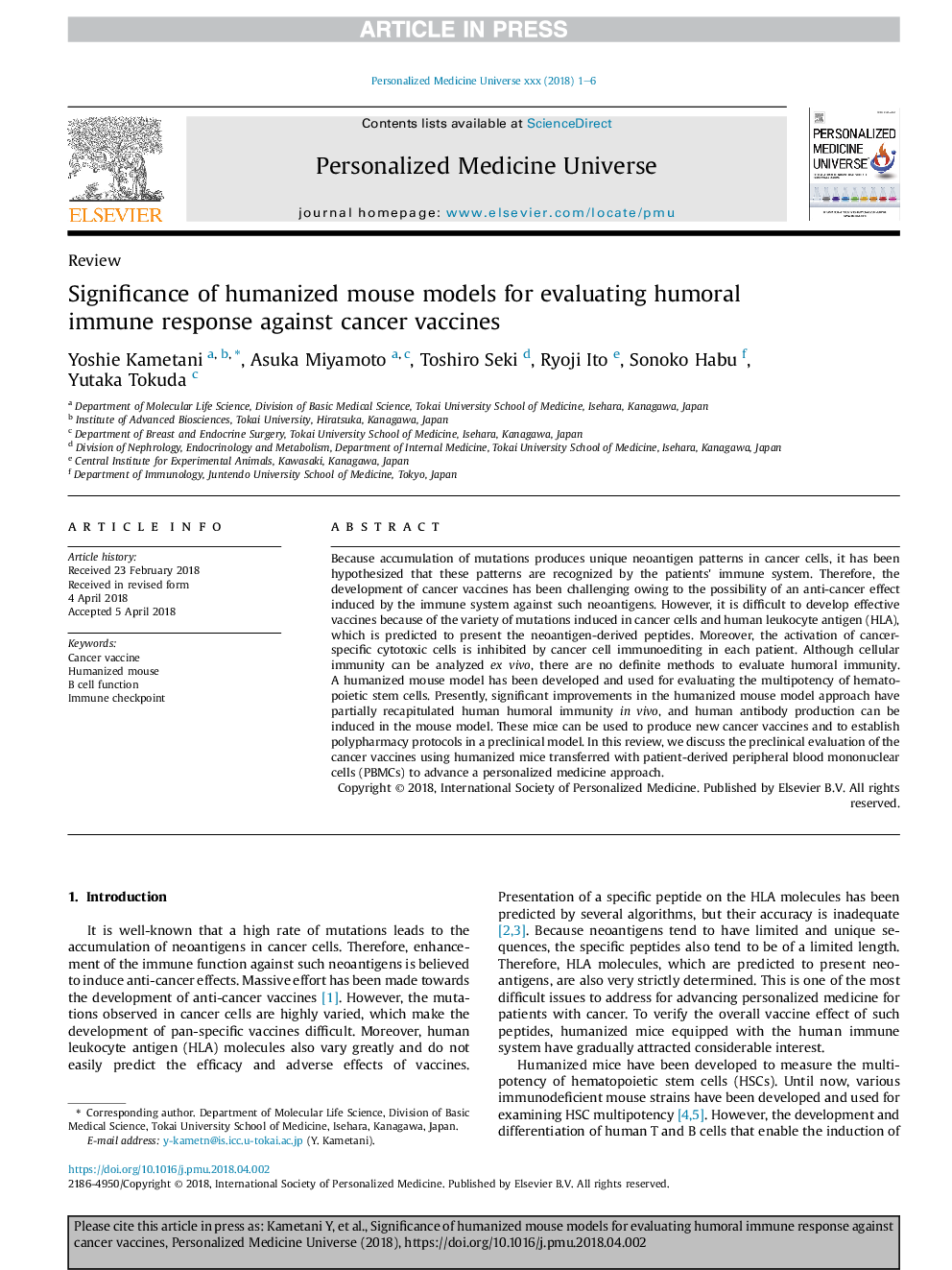| Article ID | Journal | Published Year | Pages | File Type |
|---|---|---|---|---|
| 8742077 | Personalized Medicine Universe | 2018 | 6 Pages |
Abstract
Because accumulation of mutations produces unique neoantigen patterns in cancer cells, it has been hypothesized that these patterns are recognized by the patients' immune system. Therefore, the development of cancer vaccines has been challenging owing to the possibility of an anti-cancer effect induced by the immune system against such neoantigens. However, it is difficult to develop effective vaccines because of the variety of mutations induced in cancer cells and human leukocyte antigen (HLA), which is predicted to present the neoantigen-derived peptides. Moreover, the activation of cancer-specific cytotoxic cells is inhibited by cancer cell immunoediting in each patient. Although cellular immunity can be analyzed ex vivo, there are no definite methods to evaluate humoral immunity. A humanized mouse model has been developed and used for evaluating the multipotency of hematopoietic stem cells. Presently, significant improvements in the humanized mouse model approach have partially recapitulated human humoral immunity in vivo, and human antibody production can be induced in the mouse model. These mice can be used to produce new cancer vaccines and to establish polypharmacy protocols in a preclinical model. In this review, we discuss the preclinical evaluation of the cancer vaccines using humanized mice transferred with patient-derived peripheral blood mononuclear cells (PBMCs) to advance a personalized medicine approach.
Related Topics
Health Sciences
Medicine and Dentistry
Immunology, Allergology and Rheumatology
Authors
Yoshie Kametani, Asuka Miyamoto, Toshiro Seki, Ryoji Ito, Sonoko Habu, Yutaka Tokuda,
